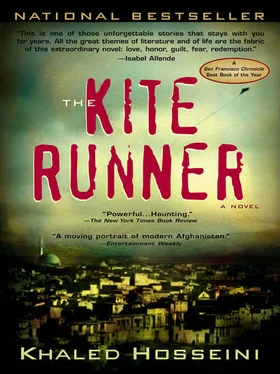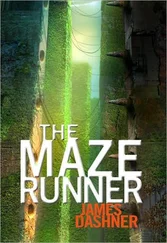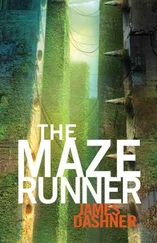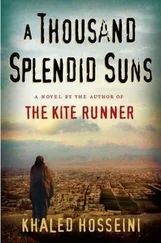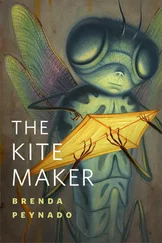I fade out.
I keep fading in and out.
THE NAME OF THE MAN with the Clark Gable mustache turned out to be Dr. Faruqi. He wasn’t a soap opera star at all, but a head-and-neck surgeon, though I kept thinking of him as someone named Armand in some steamy soap set on a tropical island.
Where am I? I wanted to ask. But my mouth wouldn’t open. I frowned. Grunted. Armand smiled; his teeth were blinding white.
“Not yet, Amir,” he said, “but soon. When the wires are out.” He spoke English with a thick, rolling Urdu accent.
Wires?
Armand crossed his arms; he had hairy forearms and wore a gold wedding band. “You must be wondering where you are, what happened to you. That’s perfectly normal, the postsurgical state is always disorienting. So I’ll tell you what I know.”
I wanted to ask him about the wires. Postsurgical? Where was Aisha? I wanted her to smile at me, wanted her soft hands in mine.
Armand frowned, cocked one eyebrow in a slightly self-important way. “You are in a hospital in Peshawar. You’ve been here two days. You have suffered some very significant injuries, Amir, I should tell you. I would say you’re very lucky to be alive, my friend.” He swayed his index finger back and forth like a pendulum when he said this. “Your spleen had ruptured, probably – and fortunately for you – a delayed rupture, because you had signs of early hemorrhage into your abdominal cavity. My colleagues from the general surgery unit had to perform an emergency splenectomy. If it had ruptured earlier, you would have bled to death.” He patted me on the arm, the one with the IV, and smiled. “You also suffered seven broken ribs. One of them caused a pneumothorax.”
I frowned. Tried to open my mouth. Remembered about the wires.
“That means a punctured lung,” Armand explained. He tugged at a clear plastic tubing on my left side. I felt the jabbing again in my chest. “We sealed the leak with this chest tube.” I followed the tube poking through bandages on my chest to a container half-filled with columns of water. The bubbling sound came from there.
“You had also suffered various lacerations. That means ‘cuts.’ ”
I wanted to tell him I knew what the word meant; I was a writer. I went to open my mouth. Forgot about the wires again.
“The worst laceration was on your upper lip,” Armand said. “The impact had cut your upper lip in two, clean down the middle. But not to worry, the plastics guys sewed it back together and they think you will have an excellent result, though there will be a scar. That is unavoidable.
“There was also an orbital fracture on the left side; that’s the eye socket bone, and we had to fix that too. The wires in your jaws will come out in about six weeks,” Armand said. “Until then it’s liquids and shakes. You will lose some weight and you will be talking like Al Pacino from the first Godfather movie for a little while.” He laughed. “But you have a job to do today. Do you know what it is?”
I shook my head.
“Your job today is to pass gas. You do that and we can start feeding you liquids. No fart, no food.” He laughed again.
Later, after Aisha changed the IV tubing and raised the head of the bed like I’d asked, I thought about what had happened to me. Ruptured spleen. Broken teeth. Punctured lung. Busted eye socket. But as I watched a pigeon peck at a bread crumb on the windowsill, I kept thinking of something else Armand/Dr. Faruqi had said: The impact had cut your upper lip in two , he had said, clean down the middle . Clean down the middle. Like a harelip.
FARID AND SOHRAB came to visit the next day. “Do you know who we are today? Do you remember?” Farid said, only half-jokingly. I nodded.
“Al hamdullellah!” he said, beaming. “No more talking nonsense.”
“Thank you, Farid,” I said through jaws wired shut. Armand was right – I did sound like Al Pacino from The Godfather . And my tongue surprised me every time it poked in one of the empty spaces left by the teeth I had swallowed. “I mean, thank you. For everything.”
He waved a hand, blushed a little. “ Bas , it’s not worthy of thanks,” he said. I turned to Sohrab. He was wearing a new outfit, light brown pirhan-tumban that looked a bit big for him, and a black skullcap. He was looking down at his feet, toying with the IV line coiled on the bed.
“We were never properly introduced,” I said. I offered him my hand. “I am Amir.”
He looked at my hand, then to me. “You are the Amir agha Father told me about?” he said.
“Yes.” I remembered the words from Hassan’s letter. I have told much about you to Farzana jan and Sohrab, about us growing up together and playing games and running in the streets. They laugh at the stories of all the mischief you and I used to cause ! “I owe you thanks too, Sohrab jan,” I said. “You saved my life.”
He didn’t say anything. I dropped my hand when he didn’t take it. “I like your new clothes,” I mumbled.
“They’re my son’s,” Farid said. “He has outgrown them. They fit Sohrab pretty well, I would say.” Sohrab could stay with him, he said, until we found a place for him. “We don’t have a lot of room, but what can I do? I can’t leave him to the streets. Besides, my children have taken a liking to him. Ha , Sohrab?” But the boy just kept looking down, twirling the line with his finger.
“I’ve been meaning to ask,” Farid said, a little hesitantly. “What happened in that house? What happened between you and the Talib?”
“Let’s just say we both got what we deserved,” I said.
Farid nodded, didn’t push it. It occurred to me that somewhere between the time we had left Peshawar for Afghanistan and now, we had become friends. “I’ve been meaning to ask something too.”
“What?”
I didn’t want to ask. I was afraid of the answer. “Rahim Khan,” I said.
“He’s gone.”
My heart skipped. “Is he-”
“No, just… gone.” He handed me a folded piece of paper and a small key. “The landlord gave me this when I went looking for him. He said Rahim Khan left the day after we did.”
“Where did he go?”
Farid shrugged. “The landlord didn’t know. He said Rahim Khan left the letter and the key for you and took his leave.” He checked his watch. “I’d better go. Bia , Sohrab.”
“Could you leave him here for a while?” I said. “Pick him up later?” I turned to Sohrab. “Do you want to stay here with me for a little while?”
He shrugged and said nothing.
“Of course,” Farid said. “I’ll pick him up just before evening namaz .”
THERE WERE THREE OTHER PATIENTS in my room. Two older men, one with a cast on his leg, the other wheezing with asthma, and a young man of fifteen or sixteen who’d had appendix surgery. The old guy in the cast stared at us without blinking, his eyes switching from me to the Hazara boy sitting on a stool. My roommates’ families – old women in bright shalwar-kameez es, children, men wearing skullcaps – shuffled noisily in and out of the room. They brought with them pakora s, naan, samosa s, biryani . Sometimes people just wandered into the room, like the tall, bearded man who walked in just before Farid and Sohrab arrived. He wore a brown blanket wrapped around him. Aisha asked him something in Urdu. He paid her no attention and scanned the room with his eyes. I thought he looked at me a little longer than necessary. When the nurse spoke to him again, he just spun around and left.
“How are you?” I asked Sohrab. He shrugged, looked at his hands.
“Are you hungry? That lady there gave me a plate of biryani , but I can’t eat it,” I said. I didn’t know what else to say to him. “You want it?”
Читать дальше
